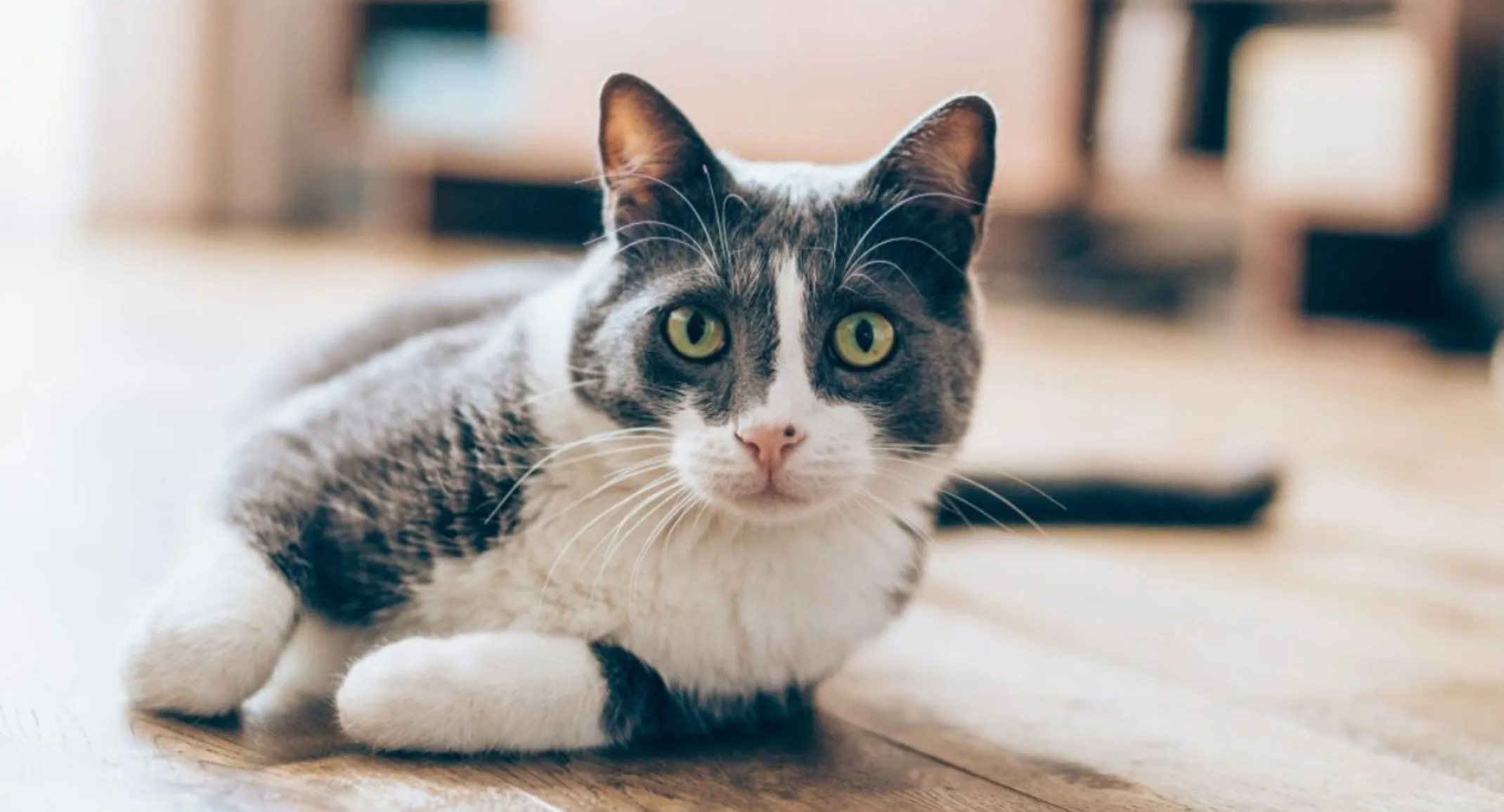What’s Hiding Beneath the Fur? Why Bloodwork is Vital for Your Cat’s Health
Cats

Cats are famously independent, curious, and quiet when something’s wrong. Unlike dogs, they don’t usually show obvious signs of pain or illness—so many cat owners are surprised to learn that a disease has been brewing under the surface. That’s where bloodwork comes in.
At Coronado Veterinary Hospital, we use routine blood testing as a window into your cat’s internal health. Whether we’re screening for early signs of illness or monitoring an ongoing condition, bloodwork gives us critical information that can shape your cat’s care and help them live a longer, healthier life.
Many members of our team are trained in feline-friendly handling and care techniques to help make veterinary visits less stressful for cats. We understand how sensitive cats can be and do everything we can to make exams, including blood draws, as calm and comfortable as possible.
Why Bloodwork Is So Important—Even When Your Cat Seems Healthy
Your cat might look like they’re in perfect shape, eating well, playing, and purring on cue. But because cats are so good at hiding discomfort, they often don’t show signs of illness until a disease is advanced. Bloodwork gives us a behind-the-scenes look at what’s happening internally.
Routine blood panels allow us to:
Establish a baseline for your individual cat’s normal values
Detect early signs of disease before symptoms appear
Track trends over time and catch subtle changes
Monitor chronic conditions and medication responses
Ensure safety for anesthesia or surgical procedures
Think of bloodwork as an early-warning system that helps us tailor care specifically to your cat’s needs.
When Should My Cat Have Bloodwork?
At Coronado Veterinary Hospital, we recommend bloodwork at several key points in your cat’s life:
Wellness Exams (Annually or Semi-Annually)
Routine bloodwork during your cat’s annual exam helps us detect silent issues and track health over time. For senior cats or those with chronic conditions, we often recommend wellness bloodwork every 6 months.
Before Surgery or Dental Procedures
Before anesthesia, we run bloodwork to make sure your cat’s liver and kidneys can safely process medications. We also check red blood cell and platelet counts to ensure your cat can heal and clot properly.
Sick Visits
If your cat is showing signs like vomiting, weight loss, lethargy, or appetite changes, bloodwork helps us quickly zero in on what’s going wrong and guide treatment.
Medication Monitoring
Certain medications, like those for thyroid disease or seizures, require regular blood monitoring to make sure they’re working and not causing side effects.
Senior Cat Care
Starting around age 7, cats are more prone to chronic illnesses like kidney disease and hyperthyroidism. Senior blood panels often include a urinalysis and thyroid testing to give us a full picture of your aging cat’s health.
What’s Included in a Typical Cat Blood Panel?
We usually start with a CBC (Complete Blood Count) and a Chemistry Panel, which together give us a big-picture view of your cat’s internal health.
Complete Blood Count (CBC)
This test measures:
Red blood cells – for detecting anemia or dehydration
White blood cells – which may increase with infection or inflammation
Platelets – important for blood clotting
The CBC can reveal infections, inflammation, blood disorders, and immune system abnormalities.
Chemistry Panel
This test measures the levels of various substances in your cat’s blood, including:
Kidney and liver enzymes
Blood glucose (sugar)
Electrolytes (like potassium and calcium)
Proteins, cholesterol, and other metabolic markers
Together, these values tell us how your cat’s organs are functioning and help detect problems like kidney failure, liver disease, or diabetes.
Additional Tests We May Recommend
Depending on your cat’s age, lifestyle, or symptoms, we may also recommend:
Thyroid Testing (T4 Panel) – especially important for cats over age 7, to check for
hyperthyroidism, a common and treatable condition that can cause weight loss, increased appetite, and heart problems.
SDMA Test – a sensitive kidney function test that can detect early kidney disease before it shows up on standard panels.
Urinalysis – often paired with bloodwork to evaluate hydration, urinary tract health, and kidney function.
Feline Leukemia Virus (FeLV) and Feline Immunodeficiency Virus (FIV) Testing – recommended for kittens, new rescues, or outdoor cats.
Fructosamine or Glucose Curve Testing – for diabetic cats or those suspected of having blood sugar issues.
Trends Matter: Why We Track Over Time
Sometimes a value may fall within the normal range, but it’s trending higher or lower than it used to. Because we keep a detailed health history for each patient, we can spot these changes and investigate them early.
For example:
A gradual increase in creatinine or SDMA might suggest slowly developing kidney disease.
A steady rise in T4 levels might indicate an early hyperthyroid condition.
Changes in glucose could point toward diabetes.
Catching these trends early allows us to start supportive care before your cat feels sick, often extending their quality of life by years.
How We Make Bloodwork Easier on Cats (and You!)
As a Cat Friendly Practice, we understand that trips to the vet can be stressful for cats and their people. Our team is trained in gentle feline handling, and we strive to make blood draws quick, calm, and low-stress. We also offer flexible scheduling and in-house testing for quicker results when needed.
We’re also happy to work with you on timing and budgeting. For some patients, we may recommend alternating between smaller in-house panels and more comprehensive lab work depending on health status and risk factors.
Have questions about your cat’s results? Just ask, we love talking about feline health, and we’ll walk you through what every value means and how it applies to your cat.
Your Role in Your Cat’s Care
As your cat’s caregiver, you’re not just a pet parent, you’re their voice, their advocate, and their most important support system. You see your cat every day, and you’re the first to notice even the smallest changes in behavior, appetite, or energy. When we combine your daily observations with clinical tools like bloodwork, we get a full, accurate picture of your cat’s health.
At Coronado Veterinary Hospital, we view your role as an essential part of the care team. Here’s how your involvement helps make the most of every lab result:
Noticing Subtle Signs Early
Cats are creatures of habit, and even small changes in routine can be clues that something isn’t right. Things like:
Drinking more water than usual
Using the litter box more (or less)
Vomiting hairballs more frequently
Becoming less playful
Hiding more or being unusually vocal
Changes in coat condition or grooming habits
Gaining or losing weight without a diet change
These subtle changes can often line up with bloodwork findings, helping us interpret results more meaningfully. For example, if your cat’s kidney values are trending up and you’ve noticed they’re drinking more water, those pieces of information together help confirm a diagnosis and guide treatment.
Understanding and Asking About Lab Results
It’s completely normal to feel overwhelmed when you hear medical terms like “creatinine,” “BUN,” or “T4.” We don’t expect you to have all the answers, that’s our job. But we want you to feel comfortable asking questions. We’ll always take the time to explain:
What each value means
Whether something is abnormal or concerning
What has changed since your cat’s last visit
What options are available for monitoring or treatment
The more you understand your cat’s bloodwork, the more empowered you are to make informed decisions for their care.
Following Up on Recommendations
When bloodwork shows something outside the normal range, we may recommend additional tests, a dietary change, or rechecking labs in a few weeks. These follow-ups are critical for confirming a diagnosis or seeing how well a treatment is working. By staying on top of these recommendations, you help us give your cat the best chance at a positive outcome.
We understand that schedules are busy and finances can be tight. If you’re ever unsure about what’s urgent or what can wait, talk to us. We’ll help you prioritize care in a way that respects both your cat’s health and your family’s needs.
Being Consistent Over Time
One of the most valuable things you can do is commit to regular wellness visits and bloodwork, especially as your cat ages. Even if results are normal, they serve as a baseline that helps us spot early changes in the future. This kind of long-term, consistent monitoring can extend your cat’s quality of life significantly.
Celebrating the Wins Together
We love being part of your cat’s journey. Whether that means catching a problem early, managing a chronic condition successfully, or simply confirming that your beloved feline is thriving. Your involvement is what makes that possible. Every time you bring your cat in for bloodwork, ask a thoughtful question, or notice a small change at home, you’re helping your cat live better and longer.
Let’s Keep Your Cat Healthy—Together
Bloodwork might seem like a routine part of a vet visit, but it plays a powerful role in helping us care for your cat. At Coronado Veterinary Hospital, we believe every cat deserves a health plan that’s proactive, personalized, and informed by real data, not just what we see on the outside.
Ready to schedule your cat’s wellness bloodwork? Give us a call or click here to book online now. We’d love to see you and your feline friend.
